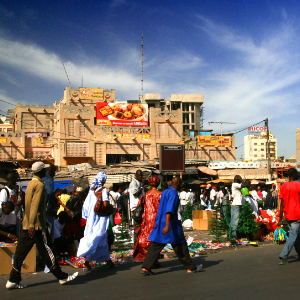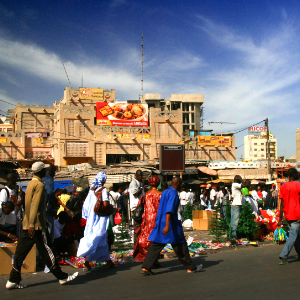I am convening a panel at ECAS 2015, the 6th European Conference on African Studies (Paris, 8-10 July 2015) that seeks to bring new perspectives on young Africans’ ways of relating to their future. The call for papers was met with overwhelming response.
 Research on young people across Africa has recognized the structural obstacles to establishing a life as socially recognized adults. Men and women are experiencing what Alcinda Honwana in the ECAS 2013 Lugard Lecture described as ‘waithood’, a prolonged period of suspension between childhood and adulthood. This panel examines where young adults direct their hopes and efforts in order to escape waithood, or as a reaction to the frustrations it entails. Africanists have referred to waithood as an underlying force in diverse contemporary phenomena, including transnational migration, rebel recruitment, and religious mobilization. And these phenomena are partly related to the shifting faith in education as a path towards independent livelihoods. My notion of a repertoire of strategies does not indicate that many opportunities are available, or that young people always act strategically. However, it emphasizes the importance of examining agency and encourages a broad approach that spans thematic specialisms.
Research on young people across Africa has recognized the structural obstacles to establishing a life as socially recognized adults. Men and women are experiencing what Alcinda Honwana in the ECAS 2013 Lugard Lecture described as ‘waithood’, a prolonged period of suspension between childhood and adulthood. This panel examines where young adults direct their hopes and efforts in order to escape waithood, or as a reaction to the frustrations it entails. Africanists have referred to waithood as an underlying force in diverse contemporary phenomena, including transnational migration, rebel recruitment, and religious mobilization. And these phenomena are partly related to the shifting faith in education as a path towards independent livelihoods. My notion of a repertoire of strategies does not indicate that many opportunities are available, or that young people always act strategically. However, it emphasizes the importance of examining agency and encourages a broad approach that spans thematic specialisms.
I received 29 proposals for the panel. They were a great collection of abstracts, addressing the topic in a range of interesting and complementary ways, with different thematic foci and from various parts of the continent. In other words: a marvelous set of proposals. Unfortunately the conference strictly enforced a limit of five papers per panel, regardless of how many were submitted.
Pathways out of waithood: Initial steps towards a conceptual framework
Jørgen Carling (Peace Research Institute Oslo, Norway)
Over the past decade, many analysts have observed how young people in Africa are obstructed from entering socially recognized adulthood. This phenomenon was described by Henrik Vigh as ‘a social moratorium of youth’; Alcinda Honwana later described the resulting situation for young people as ‘waithood’. Such marginalization of young people has been pointed to as an explanatory factor by scholars of rebel recruitment, religious mobilization, migration, entrepreneurship, and other social phenomena in Africa. If waithood is a driver of such phenomena, they could be recast as alternative pathways out of waithood. This paper makes initial steps towards a conceptual framework for this perspective. I address the analytical implications of using different metaphors (navigation, transitions, pathways), and the merits of ‘pathways’ in particular. As a framework for analysis I then suggest five processes through which young people engage with pathways out of waithood.
This is a background paper for the session; it is not formally presented at the conference but made available for download.
Constructing the future: life-course strategies of university graduates in Burkina Faso and Mali
Maike Birzle (University of Basel, Switzerland)
Susann Ludwig (University of Basel, Switzerland)
This paper focuses on life-course strategies deployed by university graduates in Ouagadougou, Burkina Faso, and Bamako, Mali. Being strongly affected by unemployment, the imagined ‘ideal’ pathway to their professional goals seems to be blocked. Hence, graduates exploit opportunities which arise as they navigate the present. When exploring how university graduates plan their future, it became obvious that hope plays an important role. Especially in contexts of uncertainty, when individual control of trajectories is limited, hope becomes crucial. Hope implies that the hoping person is doing something in order to realize his or her hope. It is this close link between hope and action that will be examined by drawing on empirical data. Based on nine months of ethnographic fieldwork in each country, this paper argues that academic youth is actively working on their education, their social and professional networks as well as their religious practice and are, therefore, not waiting, but engaging in the construction of the future they imagine for themselves.
Showing off and waithood: on the social status of young men in Guinea
Anna Dessertine (Université Paris Ouest Nanterre-la Défense, France)
Based on extensive fieldwork in a village in Upper Guinea, this paper aims to show how the ways young men perform who they are can allow for a better understanding of waithood. I will focus on what young men call the ghetto or grin, a place where they usually meet to drink tea but also as they say, ‘to kill time’. I will first show how, in meeting together in this way, young and single men experience waithood by materializing it. Indeed, other inhabitants often associated these places with the unemployment and inactivity of youth. Yet, in the course of such meetings, young men interact by joking, verbal sparring, and contests to tell the best story or relate the most impressive experience. How do such activities participate in the construction of self? What do people show of themselves to each other? Can showing off be understood as a strategy or path out of waithood? I will then briefly compare this situation with that of young men working in the artisanal gold mines of the region, so as to evaluate the impact of mobility and to question the notion of opportunity with respect to waithood. Is becoming a migrant a possible way of getting out of waithood? Is finding gold enough to enter adulthood ? By insisting on a wide range of waithood experiences, I hope to show that waithood may be the time during which young men (re)define their social status.
Multiple recipes for life stage transitions: young people’s experiences in Uganda and Burundi
Jonna Both (Leiden University, Netherlands)
Lidewyde Berckmoes (University of Amsterdam, Netherlands)
In this paper we take a critical look at current conceptualizations of strategies and life stage transitions among young people in Africa. Through case studies from longitudinal ethnographic fieldwork in Uganda and Burundi, we explore the merits and limits to the concept of waithood to understand the experiences of young people and their (lack of) life stage transitions. Firstly, in their strategies (or tactics) are youth necessarily oriented towards achieving the status of social adulthood? Can their efforts be directed elsewhere, for instance to ambitions of youthful adventures or to their more proximate needs; something to eat, clothing, cigarettes, or deal with an unwanted pregnancy? Second, how do we conceptualize the many young people who may have pursued aspirations of respectable social adulthood but–as time passes–decide to project these aspirations onto their offspring? Do these youth still ‘wait’? Third, what can we learn from the youths that did make this transition in the years of our ethnographic fieldwork; what are their ‘successful recipes’? And does the implicit notion of linear transitions from childhood-youth-adulthood always hold or can we see other patterns emerging (Johnson-Hanks, 2002)? In this paper, we focus particularly on the roles mobilization, marriage and migration play in the young people’s strategies, their orientations and their achieved social statuses.
Pathways towards adulthood: a longitudinal analysis of young people’s aspirations, strategies and realities in Lusaka
Katherine Gough (Loughborough University, UK)
It has been widely documented how young people across Africa, who are growing up in challenging economic, social and political environments, are struggling to achieve a recognised status of adulthood. This paper makes a novel contribution to the literature on youth transitions through analysing longitudinal, ethnographic data on youth aspirations, strategies and realities collected in Lusaka, Zambia. The fortunes of a number of young people living in a compound (low-income settlement) have been followed for a decade, starting in 2004 when they were on the cusp of leaving school. The paper shows how their strategies to achieve adulthood are constantly evolving as their lives are characterised by instability, often triggered by critical moments such as changing family situations (especially through birth, marriage and death), finding/losing a sponsor and altered housing circumstances. Furthermore, personalities and friendships are also found to play a key role. The young people’s aspirations, whilst often far from being realised, are shown to be central to shaping their practices and hence are key to understanding of their pathways towards adulthood.
Young people’s responses to the death of a relative: a vital conjuncture that complicates pathways out of waithood?
Ruth Evans (University of Reading, UK)
Fatou Kébé (Université Cheikh Anta Diop de Dakar, Senegal)
Jane Ribbens McCarthy (the Open University, UK)
Recent research has demonstrated the highly relational, rather than ‘individualised’ nature of youth transitions in Africa, which are embedded in social relations with family members, peers and others in the community. Based on cross-cultural research funded by The Leverhulme Trust (2014-15), this paper explores the extent to which the death of a relative represents a ‘vital conjuncture’ for young people in urban Senegal that reconfigures and potentially transforms young people’s familial responsibilities and their imagined futures, further complicating their pathways out of ‘waithood’. Thirty families of diverse ethnicities and socio-economic backgrounds living in Dakar and Kaolack were recruited. The majority of families were Muslim, while a small number were Roman Catholic. We draw on in-depth interviews with 59 family members (2 in each family) who had experienced the death of a relative, including 30 young people (aged 12-30). We analyse young people’s responses to the death of a relative and their narratives of the effects this had on their present lives and imagined futures, in terms of education, livelihoods, familial responsibilities, residential mobility and migration. The research contributes to the growing literature on young people’s pathways out of waithood in Africa in the context of death, changing cultural and religious norms and processes of urbanisation.
